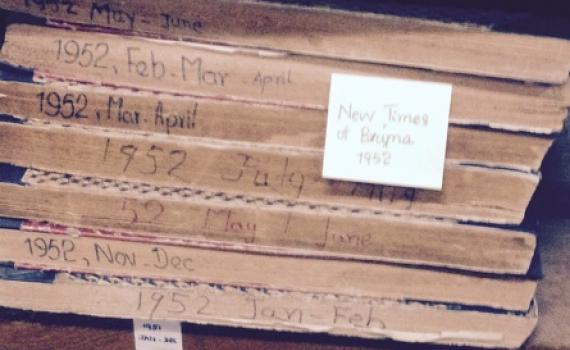
EIFL and the international library, archives and museum communities have called on WIPO to finalize the new Toolkit on Preservation (document SCCR/43/4) without making any further changes to the text. The call was made in response to an invitation to delegations at WIPO’s Standing Committee on Copyright and Related Rights (SCCR/43) to provide written comments on the Toolkit.
The WIPO Toolkit on Preservation represents a major step forward for promoting modern copyright exceptions for preservation. It provides countries with essential guidance on how to craft an exception that enables preservation of material in library collections using 21st century digital technology. In particular, it affirms that anticipatory preservation is critical to meet the many threats to the collections of cultural heritage institutions, including the fires and floods brought on by climate change and the illicit trafficking of cultural property.
During the drafting process for the Toolkit, ample opportunities were provided to all stakeholders - cultural heritage organizations, authors, publishers and collective management organizations, to comment on the text. The Toolkit authors, Prof Kenneth Crews, Rina Pantalony and David Sutton responded diligently to requests and suggestions from all stakeholders on scope, structure, approach and the wording of individual sentences. The text should therefore be finalized without any further changes.
The Toolkit on Preservation is necessary and the issue is urgent - WIPO studies show that the preservation provisions in the copyright laws of many countries fall short, and in 2021, Africa lost a part of its history in a devastating fire at the University of Cape Town: due to copyright restrictions, some items in the library’s collection had no digital backups.
Read the comments on the Toolkit on Preservation from the international library, archives and museum communities - EIFL, Library Copyright Alliance (LCA), International Federation of Library Associations & Institutions (IFLA), Society of American Archivists (SAA), International Council on Archives (ICA), International Council of Museums (ICOM) available in English, French and Spanish.
Access to preservation copies
The Toolkit comprehensively addresses the issue of preservation copying; however, it does not deal with the important issue of making those preservation copies available. While the cultural heritage community, including EIFL, did not support the decision to separate copying from access, we are looking forward to working with the authors and the WIPO Secretariat on a follow-on toolkit that provides guidance on access to the preserved copies.
Background
The Toolkit on Preservation, the first in a series of toolkits on different topics, is intended as a WIPO-endorsed resource to help lawmakers and their advisers, such as policy experts, librarians and other cultural heritage professionals, to craft more coherent and authoritative legislation for preservation copying.
The 38-page document describes the key elements of preservation programmes, the need for forward-thinking copyright exceptions for making preservation copies, and guidance on how to construct a preservation exception. It also explains the rationale and need for a preservation exception, and surveys a range of factors that should be taken into account when an exception is being drafted, such as format neutrality, pro-active preservation, and co-operative preservation programmes.
The Toolkit on Preservation was prepared as part of the agenda item on Limitations and Exceptions (L&Es) for libraries and archives at WIPO's Standing Committee on Copyright and Related Rights (SCCR). The co-authors, Prof Kenneth Crews, Rina Pantalony and David Sutton, presented the main features of the Toolkit at SCCR/43 in March 2023. The new work programme on L&Es (document SCCR/43/8) adopted by the Committee at SCCR/43 identifies preservation by libraries, archives and museums as a priority area, and the development of toolkits to guide targeted technical assistance to WIPO member states.
SHARE / PRINT









